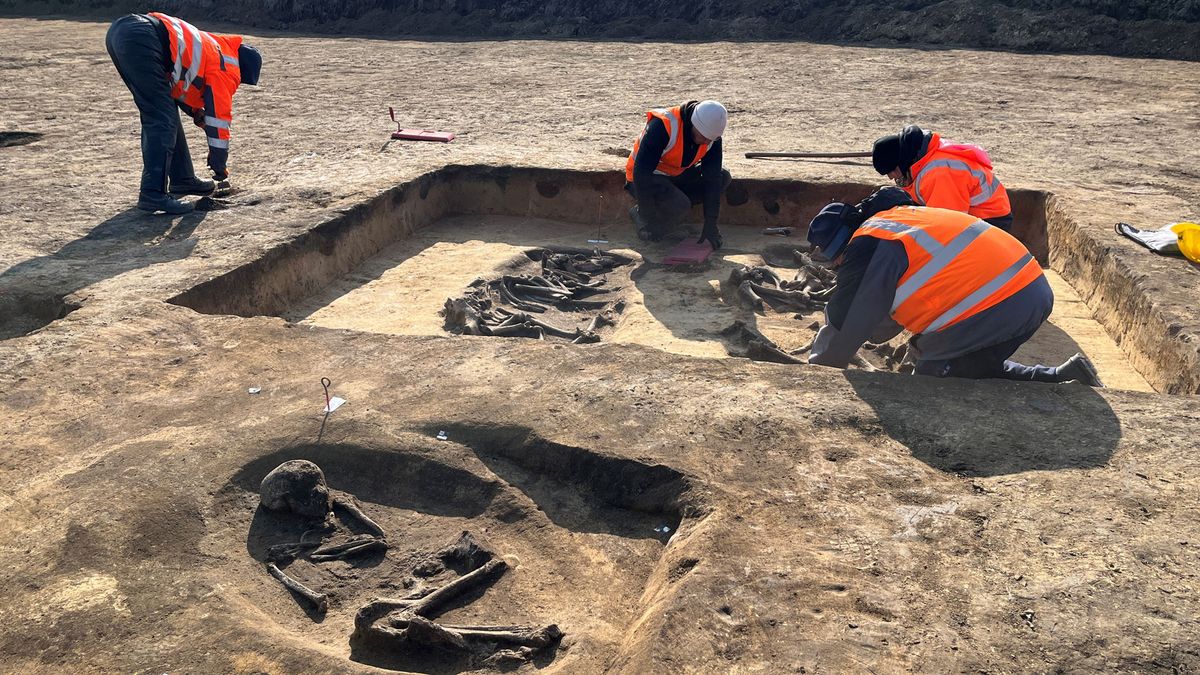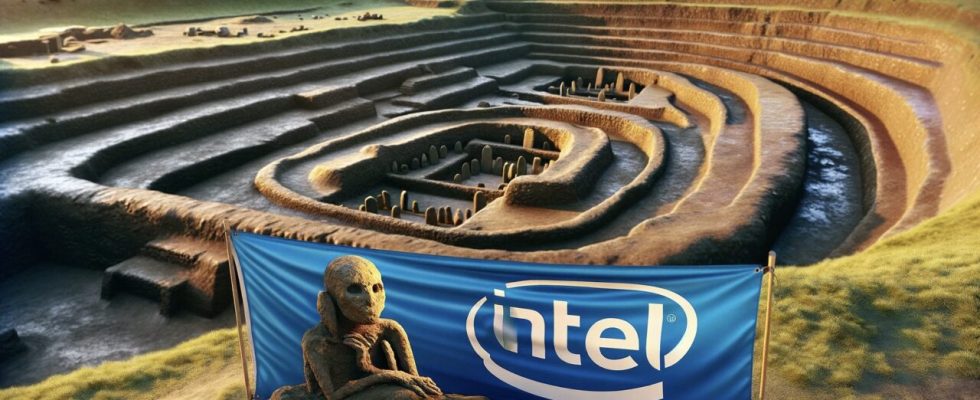Archaeologists discovered two prehistoric burial mounds in the area where Intel plans to build a billion-dollar chip factory in Magdeburg, Germany. Before starting work in the 300-hectare industrial park area, archaeologists examined the area and discovered approximately Two large wooden burial chambers dating back 6 thousand years found it. Multiple human and interesting animal remains were found in these burial chambers.
6,000-year-old graves were discovered at Intel’s chip factory construction in Germany
Many human and animal remains were found in the burial chambers. These rooms are described as large wooden structures and are approximately 20 And 30 meters long. These structures are located near the proposed Intel facility in Magdeburg. 200 meters It was built at a distance.
constructions, B.C. 4100 with 3600 dominated in Central Germany and Bohemia between people of Baalberg It is thought to have been made by. Research conducted by archaeologists, Globular Amphora Culture (3300 – 2800 BC) It shows that a corridor was created between these burial mounds for ritual processions during the time.
Additionally, archaeologists have identified “a chariot pulled by animals and a driver in front of a human skeleton.”car graveThey think they found a ” type Neolithic grave. human remains 35-40 years old It is stated that it belonged to a male and that the animals were 2-3 years old when they were killed.
This discovery could raise concerns from Intel management, given that sometimes archaeological findings cause significant delays in associated building projects. However, the press release of the German Archaeological Office does not mention possible delays.

Research and excavations began last year and are scheduled to be completed this April. It is currently unclear whether Intel’s factory construction in Magdeburg will be delayed due to archaeological discoveries.
This highlights the interaction between technology and history and the impact of industrial development on cultural heritage. What do you think about this issue? You can write your opinions in the comments section below.

